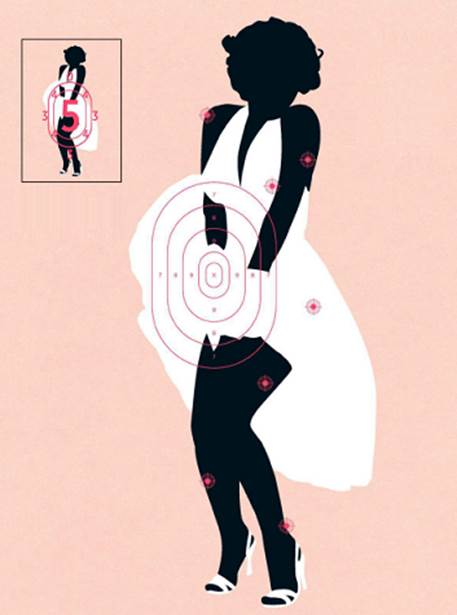The role of toxins
But, according to a study published in 2012
in the scientific journal Obesity, stomach fat can also be related to
environmental factors. It found that having high levels of the environmental
toxin PCB (a stable man made organic compound used in industry until it was
mostly banned in 1986, but which is still found in detectable levels in
animals, particularly non grass-fed animals), fish (tuna and swordfish. For
example, which tend to live longer and therefore face greater exposure times) and
humans was related to a high proportion of fat in the abdomen. “These findings
may indicate that PCB189, which was also related to developing diabetes, may be
of significance in how fat is stored in the body,” says Monica Lind, the
study’s author and associate professor in environmental medicine at the Section
for Occupational and Environmental Medicine. Similarly, recent research
published in the US has linked a chemical found in non-stick pans and water
resistant fabrics to an under-functioning thyroid. So, what’s a girl to do?
“What I prescribe is a three-pronged
approach that includes targeted exercise and corrective eating in addition to
taking specific supplements,” says Tomlinson, who insists we can’t get enough
vital nutrients from modern foods.

“The
Agency’s advice is that the benefits of a healthy, balanced diet, outweigh any
risks from dioxins and PCBs.”
Poliquin also believes in supplements to
counteract the effect of ingesting inevitable environmental toxins, suggesting
natural supplements such as glycine, vitamin C, selenium and N-acetyl cysteine
(NAC).
The UK Food Standards Agency, while
agreeing that “PCBs are found at low levels in all foods, including foods that
are important sources of nutrients”, disagrees: “The Agency’s advice is that
the benefits of a healthy, balanced diet, outweigh any risks from dioxins and
PCBs.”
So what should we believe? Best to ask
someone who’s tried it: Katie Dixon first had her Biosignature test done at the
start of 2012 and ended up winning Britain’s strongest woman under 75kg in
September of the same year. She was so impressed that she’s now signed up to
become a Poliquin practitioner herself. Initially, she was struggling with fat
around the hamstring (that’s fat around the back of your thighs. Believe us, it
exists). Poliquin puts fat stored here down to too many toxins in the body. As
such, Katie, followed a 12-week liver protocol, taking various supplements
supposed to help boost liver function (the primary detoxifying organ in our
bodies) and says: “After completing it, my hamstring readings were the lowest
they had ever been. Nothing else changed, my diet stayed the same but the
supplements I took helped me strip some of the fat from my legs.”

“After
completing it, my hamstring readings were the lowest they had ever been.
Nothing else changed, my diet stayed the same but the supplements I took helped
me strip some of the fat from my legs.”
The role of vitamins
The problem remains that we don’t actually
know for sure whether these changes are definitely the result of
supplementation (they could be psychosomatic, for example). Even Poliquin
devotees, like Dixon’s trainer, James Smith of Elite Bodyworks*, often believe
that supplements should be handled with care: “For most women, there’ll be a
big improvement in hamstring fat levels with an increase in fiber, green
vegetables and the removal of sugar from the diet [...] I’d try to get
everything else on track before we look at supplementation. Nobody takes enough
omega-3s, nobody produces enough magnesium or zinc; I’d suggest those whether
you’re an elite level athlete or a coach potato. A bit of vitamin B might help,
too. But the lifestyle changes, such as eating the right things at the right
time and recovering effectively from the training sessions, are the most
important things in losing fat.”

eating
the right things at the right time and recovering effectively from the training
sessions, are the most important things in losing fat
In fact, he insists that sleep is the
unsung hero when it comes to getting rid of fat in those stubborn areas:
“Regulating your sleep patterns is really important as sleep is one of the most
powerful ways your body regulates hormones.”
So what (and who) can we believe for sure?
It’s still an ongoing argument but for now we do know that these four
study-backed tips, below, will go some way to targeting your belly. And that’s
not a bad place to start, right?